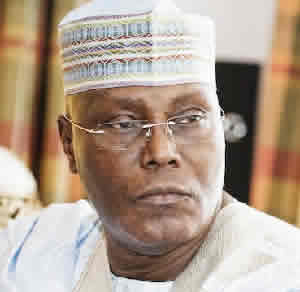
In a statement released on Tuesday via X, Atiku highlighted the importance of traditional institutions in Nigeria’s governance structure and called for their protection from arbitrary state interference.
“Recent developments in the country have seen a growing tendency of state governments exerting influence in distorting the modalities of enthroning traditional stools,” Abubakar stated.
He acknowledged that while traditional rulership falls under state government purview, these institutions play a crucial role in governance and community stability.
“And thus, traditional institutions must be protected from the arbitrariness of state governments that threaten their stability,” Atiku declared.
Abubakar emphasised the significance of traditional rulers in maintaining peace and order, stating, “When the structure of ascension of traditional rulers is unstable, it will become equally difficult to maintain peace and orderliness in communities.”
The former Vice President pointed out that despite the lack of constitutional recognition, traditional institutions perform vital roles in the economic life and security of their domains.
He added that “the traditional institutions formed the governance structures before the advent of the colonialists. And they governed well.”
Abubakar advocated for constitutional reform to recognise and define the responsibilities of traditional institutions.
He argued that such reform is “even more important in view of the collective drive to stem the ugly tide of terrorism and sundry security challenges at the local levels.”
Abubakar also appealed to state governors to respect traditional institutions, stating, “The customs that our traditional rulers represent is the totality of our heritage as a people.”
In May, Kano State Governor, Abba Yusuf, reappointed Lamido Sanusi as the Emir of Kano, four years after he was dethroned by a former Governor of the state, Umar Ganduje.
In addition, the governor deposed five emirs appointed by Ganduje and gave them a 48-hour ultimatum to vacate their official residences and palaces.
He also directed them to hand over all affairs to the Commissioner for Local Government and Chieftaincy Affairs.
Those affected by the directive included the Emir of Kano, Alhaji Aminu Ado Bayero; Emir of Bichi, Alhaji Nasiru Ado Bayero; Emir of Karaye; Alhaji Ibrahim Abubakar II; Emir of Gaya, Alhaji Aliyu Ibrahim and the Emir of Rano, Alhaji Kabiru Inuwa.
Meanwhile, the Muslim Rights Concern, on Monday, raised concerns about an alleged plan by the Sokoto State Governor, Ahmed Aliyu, to depose the Sultan of Sokoto, Alhaji Muhammad Sa’ad Abubakar III.
In a statement on Monday, MURIC’s Executive Director, Prof. Isiaq Akintola, expressed alarm over the potential move, which comes amid controversy and tension following the deposition of several monarchs in Kano State.
Governor Aliyu had previously removed 15 traditional rulers for various offences.














